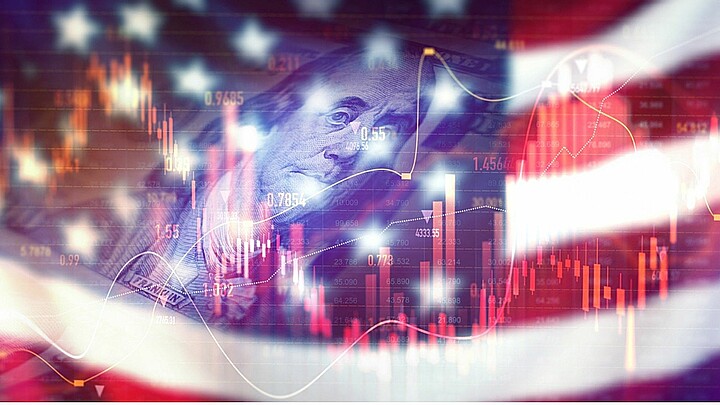Business
As stock market tumbles, woke companies hit especially hard
Corporations experiencing big losses have prioritized left-wing causes over shareholder profit, critics warn
April 29, 2022 10:55pm
Updated: April 30, 2022 1:43pm
Some of the biggest, most prominent companies that have publicly gone woke have been at the center of the stock market's nosedive this month, raising concerns that corporate leaders' embrace of left-wing politics may now be coming at the expense of profit for shareholders.
Stocks tumbled right into the closing bell on Friday, with the Nasdaq marking its worst month since October 2008 amid a financial crisis and the S&P 500 having its worst month since the onset of the COVID-19 pandemic in March 2020.
The Dow Jones industrial average, meanwhile, plummeted more than 900 points, capping off an April to forget for the three major stock market indexes.
Technology stocks drove much of the nosedive, collapsing over the last few weeks.
Amazon lost 14% off its share price alone on Friday and 24% for the month. Google parent company Alphabet fell 18% for the month, and Apple dropped about 10%. The three tech giants plus Netflix and Facebook parent Meta Platforms lost more than $1 trillion in market value this month, the most since Facebook started trading in May 2012, according to the Wall Street Journal.
Recent earnings for these companies were "abysmal" and "disappointing," according to Edward Moya, senior market analyst for OANDA.
Moya listed several reasons for the market plummeting: the war in Ukraine, China's response to COVID-19, and ongoing supply chain issues. But the big issue on everyone's mind is inflation and the prospect of a coming recession.
"The overall concern that the Federal Reserve will have to send the economy into a recession to lower inflation is worrying investors," Moya told Just the News.
Experts have blamed a combination of high government spending under President Biden and near-zero interest rates kept in place by the Federal Reserve for overheating the economy and triggering historically high inflation.
The Fed is now trying to combat soaring inflation by raising interest rates. However, economists say doing so, while necessary, could lead to a recession.
"There was an unprecedented fiscal and monetary response by policymakers and central bankers to COVID-19," said Moya. "Now we're letting off that. Many think the Fed will manage a soft landing [as it raises interest rates], but there's a possibility of a recession."
He noted the Biden administration won't be able to pass any legislation until after the midterm elections and Democrats likely won't do well in November, suggesting there will be less economic stimulus to pump into the economy.
According to Moya, the key theme underlying the stock market nosedive is uncertainty for investors.
Adding to this uncertainty is a misalignment of priorities among corporate leadership by putting woke politics above making money for shareholders, according to former corporate executives.
"I can't imagine as a CEO that you want to go fire half your customers," former Best Buy CEO Brad Anderson told the "Just the News, Not Noise" television program this week. "It's not the position of a company to basically take political issues and drive them unless that issue affects the [business] operations. You want to attract customers into the business of all different persuasions. And I think that has been lost."
Anderson pointed to Netflix and Disney as examples of corporations that have promoted left-wing causes and risked alienating customers and even employees.
Netflix recently reported it lost subscribers for the first time in more than 10 years and saw its shares fall by more than 70% from their peak last November.
The video streaming company has also promoted woke causes, releasing, for example a trailer for a Netflix original series titled "He's Expecting," which spotlights the transgender and gender-neutral community. In another Netflix project, "First Temptation of Christ," Jesus is portrayed as gay.
Elon Musk recently lambasted Netflix for having a "woke mind virus" that made it "unwatchable."
Disney's share price has also fallen sharply over the past couple weeks, during which the company publicly criticized a recently passed bill in Florida that bans instruction on sexual orientation and gender identity in classrooms for grades K-3. Disney announced it would suspend political donations in Florida and support organizations working to oppose the new measure.
In response, the Florida legislature voted to strip Walt Disney World of its private government status with the backing of Republican Gov. Ron DeSantis.
Disney's battle with the state of Florida is a "complicating" factor, said Moya. "Investors don't want to have to deal with that uncertainty."
Moya noted that Disney has also made "some terrible investments," citing ESPN and Disney Plus, which has caused the company to "lose some of its luster."
Former McDonald's CEO Ed Rensi blasted Disney for risking the wellbeing of its company to get involved in politics.
"Disney, for whatever reason, came forward with a pronouncement that they're going to fight and work to defeat this bill," he told "Just the News, Not Noise" program. "Their job isn't legislation. Are you going to punish your shareholders, your investors, and defeat the purpose of what you're trying to do as a company. This may be a terrible thing for Disney right now. And this is happening all over the United States."
Apple, Amazon, Alphabet's Google, and Meta are also among the numerous corporations that have pushed left-wing causes publicly, such as endorsing critical race theory and the Black Lives Matter movement.
This so-called corporate wokeness is largely motivated by stakeholder capitalism, according to experts.
Stakeholder capitalism is the idea that companies should serve not only their shareholders but also other interests and society at large, according to Vivek Ramaswamy, an entrepreneur and author of "Woke, Inc.: Inside Corporate America's Social Justice Scam."
BlackRock CEO Larry Fink has been one of Corporate America's biggest promoters of stakeholder capitalism, arguing companies should make their stand on societal issues known and have a larger purpose than making money for shareholders.
"When you get a large organization like BlackRock that controls $10 trillion [in assets], they're in a fishy situation where they can put a lot of pressure on boards of directors to behave certain ways," said Rensi. "I don't think that's good. I think the individual in those funds should be able to vote their own shares of stock and have their own voice."
Last year, BlackRock helped elect three climate-focused candidates to Exxon Mobil's 12-member board, describing its vote as an effort to push Exxon to fight climate change. BlackRock is a major Exxon shareholder.
Rensi referenced a past conversation with the late economist Milton Friedman to describe what he believes is the proper role for companies and why corporate leadership shouldn't get involved in political issues irrelevant to their business.
"I want you to know that it is not your province to decide how to spend the shareholders' money," Rensi recalled Friedman telling him. "You make a good profit. You give that profit to them. They then in turn can pick and choose what they want to give their money to, if they want to at all ... That's not your duty. Your duty is to make profit, and let them spend the money wisely."
"And I really subscribe to that," Rensi added.










